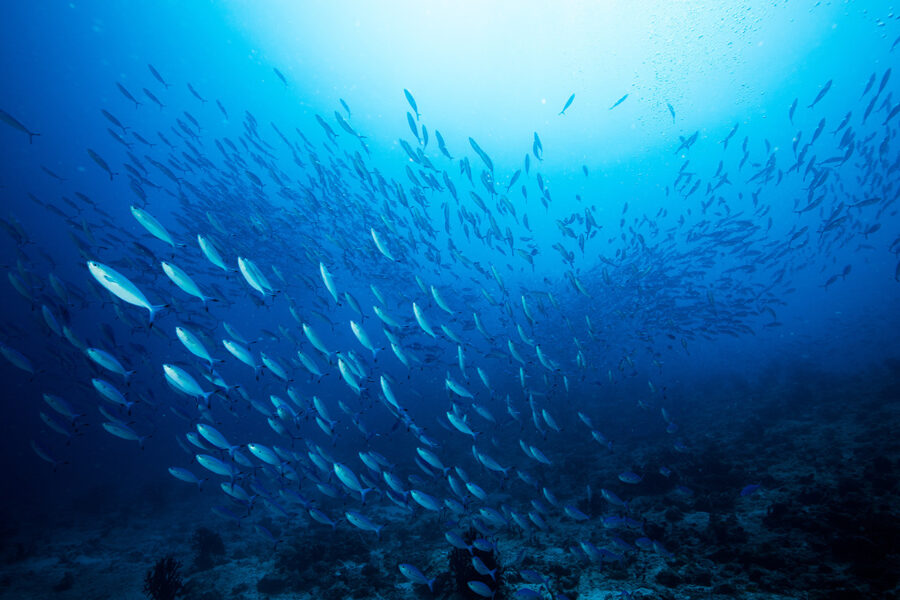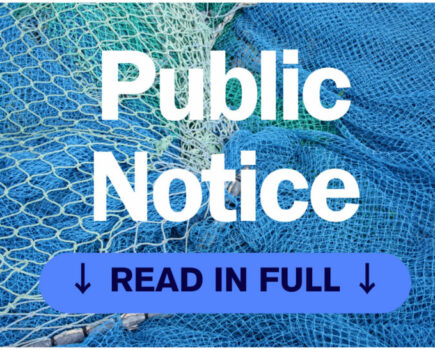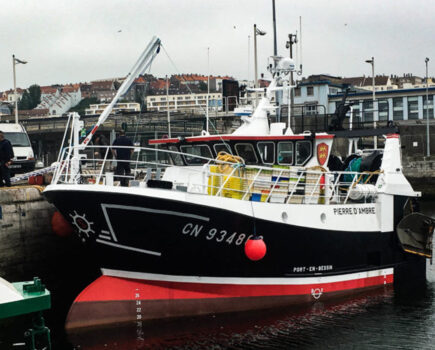The environmental NGO Blue Marine Foundation has started formal legal proceedings against Defra to force a judicial review of the 2020 Fisheries Act – in particular its emphasis on sustainability and socio-economic objectives.
The launch of legal proceedings on 20 March followed a very public warning to the Defra secretary of state in 2023, before the negotiations between the UK, the EU and Norway to agree TACs for 2024.
Many of the 2024 TACs – Blue Marine singles out mackerel, western monk, Celtic Sea cod and Irish Sea whiting as examples – were set well above those recommended by ICES scientists, which it claims puts the stocks, and fishermen who depend on them, at risk.
In the case of mackerel, the NGO said: “Additional quota was negotiated by the UK, knowing it was unsustainable, and given free to wealthy companies while smaller-scale, independent fishers are facing multiple challenges.”
In total, it claims, more than half the 2024 TACs agreed were above those recommended by the science.
Charles Clover, founder of Blue Marine, said: “The secretary of state failed to give adequate reasons for the decisions and failed to weigh competing environmental, social and economic requirements adequately.
“In particular, Blue Marine has called into question the economic basis for overfishing; as stocks have declined through decades of overfishing, so have the fishing businesses which depend on them.
“Ultimately, the [Fisheries] Act is not being applied and it is hurting fish, fishermen and the local economy. It is time that the distribution of fishing opportunities was reformed to make it clear that natural resources are being distributed according
to scientific advice to protect the marine environment and food security and in ways which benefit our struggling coastal communities – not foreign fleets or millionaire vessel-owners who can afford to practice restraint to save stocks.”
Blue Marine – which has sponsored and supported a number of fisheries regeneration projects, notably in Lyme Bay – has been backed in its action by sections of the inshore fishing industry.
Jerry Percy of NUTFA, in his last weeks representing the organisation, welcomed the judicial review, saying: “The government is already reneging on its commitment – in the post- Brexit Fisheries Act – to include social, economic and environmental criteria when determining fishing quota.
“It is able to ignore organisations like ours because they know we don’t have the resources to challenge them in court. We therefore welcome Blue Marine’s efforts to hold them to account and to shine a light on how these decisions are made, and on what basis.”
Eastbourne fisherman Graham Doswell said: “Overfishing and lack of transparency are not in our interest, so we support this case. If it isn’t brought, things will never change and there will be fewer of us left to question it in the future.”
Speaking for the NFFO, however, CEO Mike Cohen suggested that the judicial review was seeking a strict interpretation of scientific advice that would prejudice and overrule social and economic considerations.
“Blue Marine are asking the courts to rule that the UK’s fisheries minister must not exceed ICES advice when deciding TACs. Certainly, the Fisheries Act says that decisions must be based on ‘the best available scientific advice’, but surely this does not mean slavishly following every pronouncement from ICES.
“ICES advice is supposed to help inform fisheries managers, not replace them. This court case is not about changing how fishing opportunities are allocated – it says that quite explicitly – it’s about reducing the amount of fish available to everyone. If their reasoning had been followed last year then the pollack debacle would have been even worse.
“There is an important conversation to be had about how we can best keep our fisheries sustainable, but looking for legal loopholes that will eliminate any flexibility for UK fisheries management and leave our inshore fishermen at the mercy of another foreign committee is not the way to advance it.”
The matter is likely to stay under the radar now for several months. The wheels of justice grind slow, and in an election year that may see the timetable extended, the process of going to court is expected to take until at least the late summer.
Given the potential for appeals, and the fact that a full written judgement is often not made available for some considerable time after the judges’ initial decision has been handed down, it is unlikely that the outcome will be fully known ahead of negotiations on the 2025 TACs.
This story was taken from the latest issue of Fishing News. For more up-to-date and in-depth reports on the UK and Irish commercial fishing sector, subscribe to Fishing News here or buy the latest single issue for just £3.30 here.
Sign up to Fishing News’ FREE e-newsletter here.








